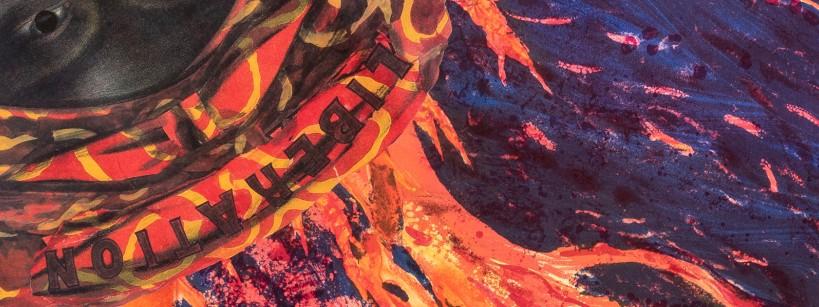Self-Paced Lesson
During this Art and Activism: Betye Saar lesson, students will learn that creating art is one of the ways that people can take action to help create change in their communities. Students will analyze a work of art by Betye Saar that incorporates activism. Then students will make hypotheses about the artwork. Next, students will prove or disprove their hypotheses by analyzing object labels and artist’s quotes. Finally, students will help create change in their communities by creating and sharing their own artwork, object labels, and artist’s quotes.
Standards
CA HSS 11.1.4
CA HSS 11.5.2
CA HSS 11.10
CA VA Re7
CA VA Re8
CA VA Cr1
CA VA Cr2
CA VA Cn10
CA VA Cn11
Lesson Resources
Lesson: Art and Activism: Betye Saar; Spanish
Teaching Tips for Different Learning Environments
Whole Class In-Person Learning:
Activate - Activate students’ prior knowledge.
- Ask the whole class to share some of the different ways that people can take action to help create change in their communities.
Investigate - Have students analyze artwork, object labels, and artist’s quotes.
- Read the INTRODUCTION and PART 1 with the whole class. Then have a whole class discussion about the students’ answers to the questions in the INTRODUCTION and PART 1.
- Divide the whole class into groups or partners. Ask them to analyze an artwork in PARTS 2 - 3, make hypotheses about the artwork in PARTS 4 - 5, and prove/disprove their hypotheses by analyzing an object label and artist’s quote in PARTS 6 - 7. Then have a whole class discussion about the students’ answers to the questions in PARTS 2 - 7.
- Ask students to independently analyze an artwork in PARTS 8 - 9, make hypotheses about the artwork in PARTS 10 - 11, and prove/disprove their hypotheses by analyzing an object label and artist’s quote in PARTS 12 - 13. Then have a whole class discussion about the students’ answers to the questions in PARTS 8 - 13.
Relate - Have students make connections to their own lives.
- Ask the students to complete PART 14 independently.
Create - Have students create their own artwork, object labels, and artist’s quotes.
- Assign the students PARTS 15 - 16 to complete independently.
Demonstrate - Have students demonstrate their learning by sharing their work with others.
- Ask students to share their artwork, object labels, and artist’s quotes during a classroom exhibition or gallery walk.
Extension Activity - Have the students complete PARTS A - F independently.
Whole Class Distance Learning:
- Follow the Whole Class In-Person Learning instructions.
- Instead of having a classroom exhibition or gallery walk, students can post their artwork, object labels, and artist’s quotes for others to view through Padlet or Flipgrid.
Associated Resources




